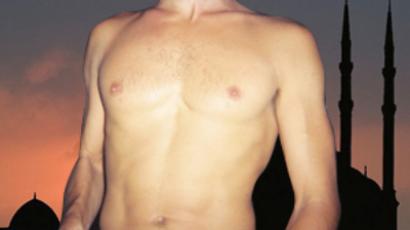Children in Nigeria branded witches and abused

In Akwa Ibom, a Nigerian state with an alleged concentration of child witches, life’s misfortunes are often diagnosed as sorcery. As a result, children suffer abuse, abandonment or worse.
Religion is one of the biggest industries in Akwa Ibom. Due in large part to the work of charities, the connection between religion and a profitable form of child abuse is being pushed into the public spotlight.One Sunday, after losing his job, Jerry’s father returned from a prayer session demanding to know why the boy had bewitched him. Jerry claims that since he had no answer his father doused him with petrol and set him on fire.Jerry’s face and part of his body were burned. But his father was not fulfilled. Jerry was put into a dark room and deprived of food. Weeks later, his father bought more petrol. His mother warned if he didn’t give up witchcraft he would be burnt to death.
Jerry ran away and was discovered in the bush by a woman. He was eventually turned over to the Child’s Rights and Rehabilitation Network (CRARN), which runs a camp and academy for abandoned and abused children.“Widespread violations are taking place on a daily basis,” says Stepping Stones Nigeria, another charity that protects Nigeria’s “witch” children.Experience has shown that suspected “witches” are being abandoned by their parents/guardians, taken to the forest and slaughtered, bathed in acid, burned alive, poisoned to death with a local poison berry, buried alive, drowned or imprisoned and tortured in churches in order to extract a “confession.”Stepping Stones Nigeria’s award winning documentary, Saving Africa’s Witch Children, introduced the world to one religious perpetrator who employs such tactics—Bishop Sunday.The Bishop claimed the power to exorcise evil spirits. Not only did he do this by abusive means, he also blatantly admitted, "I killed up to 110 people who were identified as being witches.”The fee for Bishop Sunday’s services started at about $270, an exorbitant amount compared to the average income.Saving Africa’s Witch Children made infamous another film, End of the Wicked, produced by prophetess Helen Ukpabio.In one part of her film, a child wizard summons the spirits of sleeping children which disappear through bedroom walls to join a satanic meeting. An adult leader orders the children to take things from their parents and bring them to the gathering so that the adults can be tormented.Later, a child wizard with deformed skin and hook-like fingernails asks a boy what he has to offer the gathering. He replies, “I brought discharges from the eyes and ears of my father.” The spirit of his father is summoned and a spell forces his eyes to pop out and when he awakes he is really blind.Critics say that such films and books that concentrate on witchcraft reinforce the exploitation of superstition that takes place in the churches.
In an interview, Ukpabio said, “It is surprising that nine years after, somebody is having a problem with a film that has saved a lot of families.”Although she admits spending thousands of dollars for mass healings of thousands of witches, she denies charging fees or branding children as witches.Ukpabio says her video shows “children who were greedy and were contaminated by other children who were witches in the school.”She insists witchcraft is alive in Nigeria and around the world, “So I will not join the campaign that says there is no witchcraft, because that is the devil speaking. And when the devil speaks, he makes a lot of people powerless and intimidates them,” she says.“I have 149 churches in Nigeria and over 50,000 members. I will make sure that I fight witchcraft in Akwa Ibom until I deliver the witches.”A paper commissioned by United Nations High Commission for Refugees (UNHCR) confirms “that witchcraft accusations lead to violence and persecution…”Jeff Crisp, of UNHCR says "accusations of witchcraft constitute some of the most serious refugee protection problems encountered by UNHCR."The agency is currently seeking a professional to perform a study on the issue.
Michelle Smith for RT














